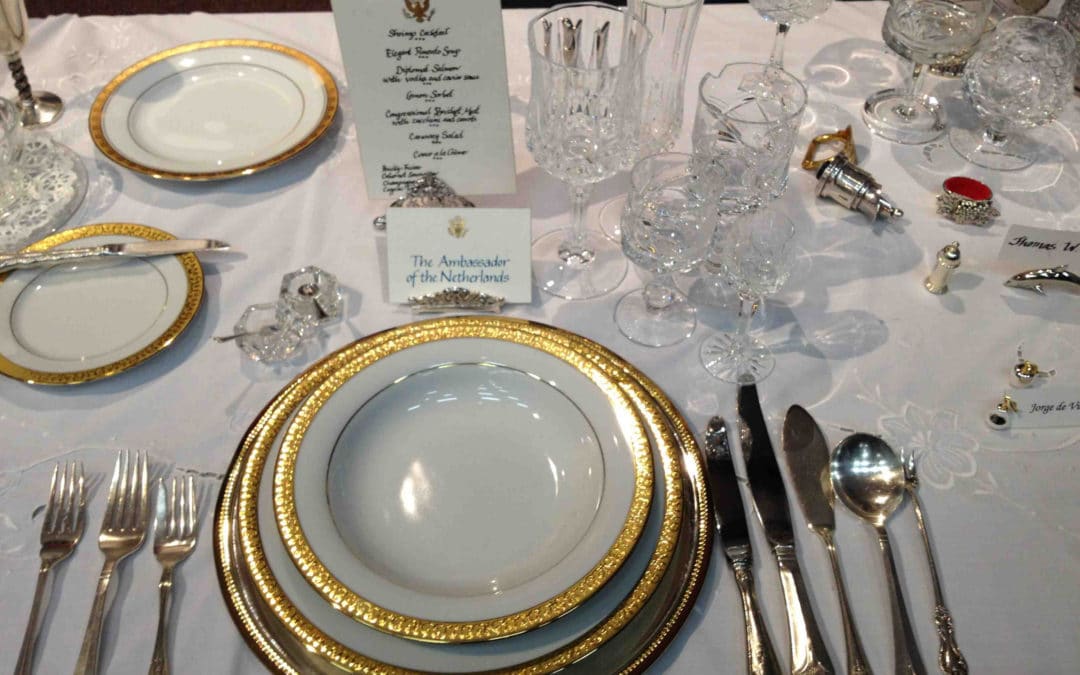Today’s World Kitchen renowned chefs and guests alike know that the art of good manners and fine dining etiquette are important to any restaurant setting. From what you wear to how you sit, there are different techniques and factors that play into fine dining etiquette.
Dress Code – Semi formal and formal dress code is appropriate. No jeans, shorts, sandals, or t-shirts with writing such as a slogan.
Seating – When fine dining for a special event, the seating arrangement is determined by name cards indicating where you will sit. In a formal setting, the hosts of the event will sit the farthest away from the door, and the guests at the tables will alternate, per gender. It is proper to keep your feet firmly on the ground after being seated. When eating, elbows should never touch the table. Never place your phone or keys on the table, as it distracts from the atmosphere.
Napkins – When using your napkin, fine dining etiquette is to unfold it to dab your face lightly, then place it back on your lap. When you need to get up, place the napkin on your chair, not on the table. This is saving your place and showing that you are not finished with your meal just yet. Never place food on your napkin.
Glasses – In a formal setting, there will be a couple of drink glasses set. Today’s World Kitchen would like for you to know that white wine glasses are more petite than red wine glasses, while champagne flutes are the thinnest. There will also be a glass for water. Do not touch anyone else’s glasses when it comes time to toast.
Bread – Bread usually comes after your drinks. When preparing to eat bread, it is fine dining etiquette to take a piece from the pile and bring it to your plate. When applying butter, take some from the dish and bring that to your plate as well, to avoid returning your knife to the community butter dish. Break the bread apart with your fingers to eat.
Cutlery – Part of knowing fine dining etiquette is knowing about your forks and knives. The cutlery that is farthest away from you is for the first course, and so on. When eating, cut small pieces of food and place your knife down after every bite. To indicate that you are done with your meal, it is proper to place your fork and spoon in the center of your plate.
Conversation – Avoid talking about politics or personal issues when striking up conversation. You also need to make an effort to not avoid others at the table if you are concentrating on a particular person. Do not raise your voice or lower it to a whisper. If you do not think that you can avoid doing so, remain a good listener to those who are speaking.
The Bill – If the host is paying, you should never take advantage and continually order. It is important that you also know to never walk away from the table when the bill is brought to be paid. Make arrangements prior to your meal in order to avoid confusion when the bill comes.

